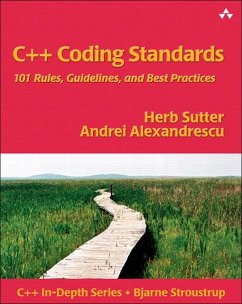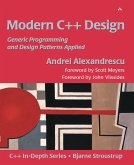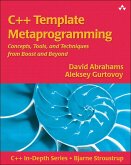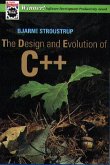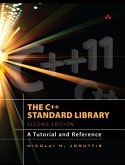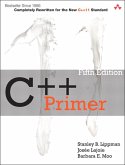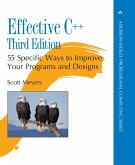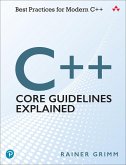The authors cover virtually every facet of C++ programming: design and coding style, functions, operators, class design, inheritance, construction/destruction, copying, assignment, namespaces, modules, templates, genericity, exceptions, STL containers and algorithms, and more. Each standard is described concisely, with practical examples. From type definition to error handling, this book presents C++ best practices, including some that have only recently been identified and standardized-techniques you may not know even if you've used C++ for years. Along the way, you'll find answers to questions like
- What's worth standardizing--and what isn't?
- What are the best ways to code for scalability?
- What are the elements of a rational error handling policy?
- How (and why) do you avoid unnecessary initialization, cyclic, and definitional dependencies?
- When (and how) should you use static and dynamic polymorphism together?
- How do you practice "safe" overriding?
- When should you provide a no-fail swap?
- Why and how should you prevent exceptions from propagating across module boundaries?
- Why shouldn't you write namespace declarations or directives in a header file?
- Why should you use STL vector and string instead of arrays?
- How do you choose the right STL search or sort algorithm?
- What rules should you follow to ensure type-safe code?
Whether you're working alone or with others, C++ Coding Standards will help you write cleaner code--and write it faster, with fewer hassles and less frustration.
Dieser Download kann aus rechtlichen Gründen nur mit Rechnungsadresse in A, B, BG, CY, CZ, D, DK, EW, E, FIN, F, GR, HR, H, IRL, I, LT, L, LR, M, NL, PL, P, R, S, SLO, SK ausgeliefert werden.
Hinweis: Dieser Artikel kann nur an eine deutsche Lieferadresse ausgeliefert werden.

